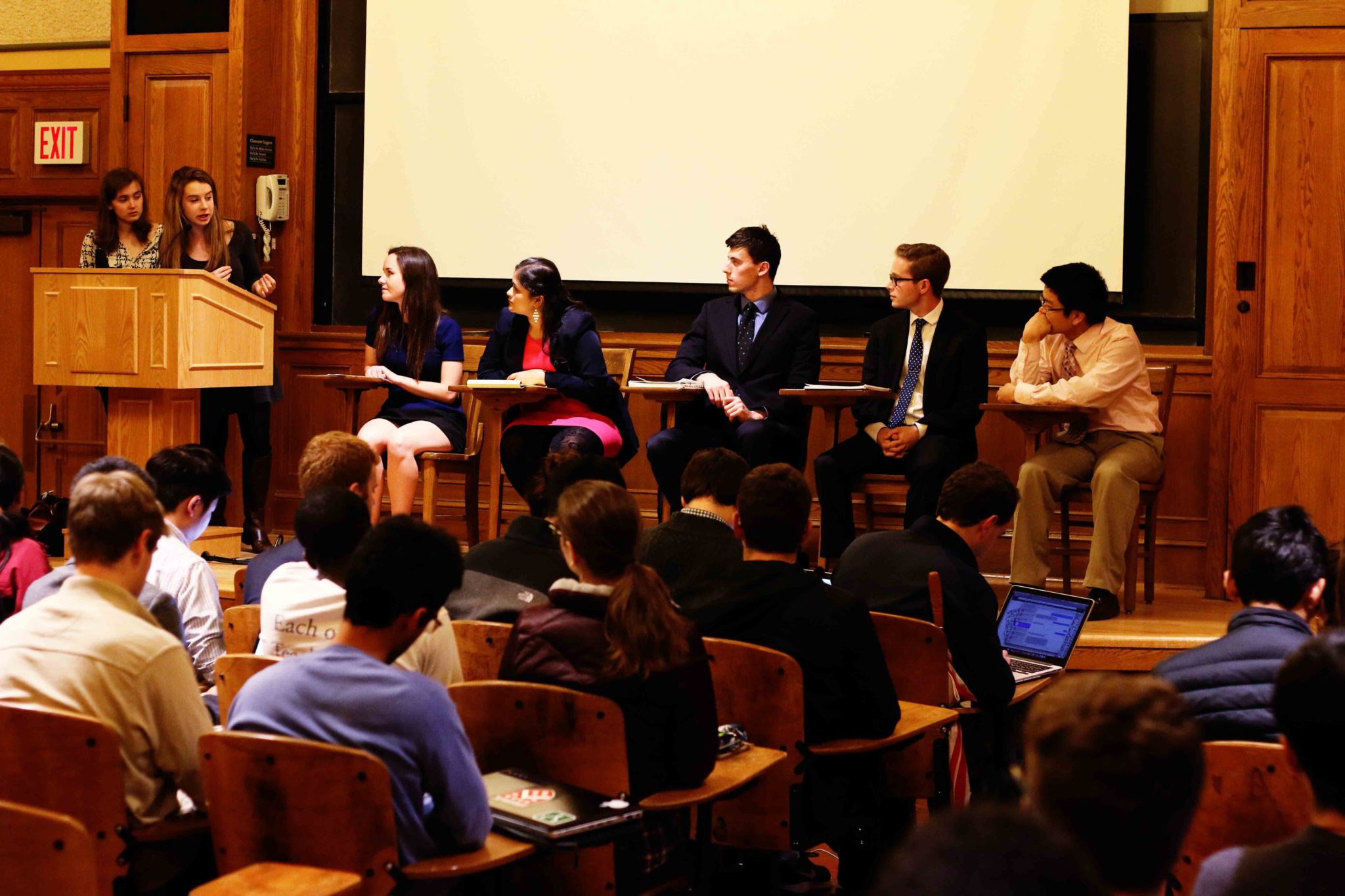
Yale has so far avoided the skirmishes between protesters and far-right groups that have taken place at universities across the country — from UC Berkeley to the University of Florida — in recent months.
But that hasn’t stopped the University community from grappling with the issues underlying those controversies.
Last week, Robert Post, former dean of the Yale Law School, published an opinion piece in Vox in which he argued that decisions whether to prohibit certain speakers from visiting the campuses of public universities should be made on educational criteria, rather than on the basis of abstract First Amendment rights. In the piece, Post argues that it would be “misguided” to make free speech the only factor in deciding whether or not to allow speakers on campus.
“First Amendment rights protect the right of each and every person to participate in the magnificent process of self-governance. It forbids the state from evaluating the competence of opinions,” Post said. “Students are, however, under the tutelage of the university, which is an arena of education, not of political self-governance.”
Post explained that public universities may incur significant costs when hosting these events, especially to provide security for particularly controversial speakers. He explained that the “root and fiber of universities are not equivalent to those of the public sphere,” and resources should be expended by universities only to advance two core missions: “education and the creation of knowledge.”
To Post, administrators and faculty already engage in “content discrimination” when moderating class discussions, curating course material, making hiring decisions. However, Post said, administrators should not have absolute power to make judgments about whether the content of speeches contributes to the educational missions of the university.
“To the extent that the educational mission of higher education includes the inculcation of critical thinking, it requires universities to instill in students the capacity to face and evaluate ideas, however threatening or dangerous they may seem,” Post said. “Universities must thus distinguish between offensive ideas and personal incivility.”
Post’s article elicited a range of reactions from Yale students interviewed by the News.
Noah Daponte-Smith ’18, vice president of the Buckley Program, disputed the notion that content discrimination should extend outside the classroom. While he recognized the authority of professors to shape the content students are exposed to in their classes, Daponte-Smith said universities should not be able to decide what students can and can’t listen to at extracurricular events.
Chair of the Party of the Left Gabriel Groz ’19 told the News that he believes a university should not bar individuals invited by student groups from speaking on campus unless they present an “egregious threat to public safety.”
“Students should certainly have the opportunity to hear views that they disagree with and should learn how to engage productively with people whose political beliefs differ from their own,” Groz said. “But a line should be drawn when extremist elements are thrown into the mix. A Nazi-like Richard Spencer, for example, must be denied the ability to propagate his ideology wherever he goes. Public institutions should deny venues to individuals like Spencer: dangerous anti-democratic extremists who hold clear ties to domestic terrorist organizations.”
Richard Spencer spoke at the University of Florida on Oct. 19.
Daniel Dager | daniel.dager@yale.edu
Clarification, Nov. 6: An earlier version of this article said that Post argued that certain speakers should be prohibited from speaking on college campuses. In fact, he argued that universities should make decisions about whether to permit speakers based on educational criteria, rather than on the First Amendment.







